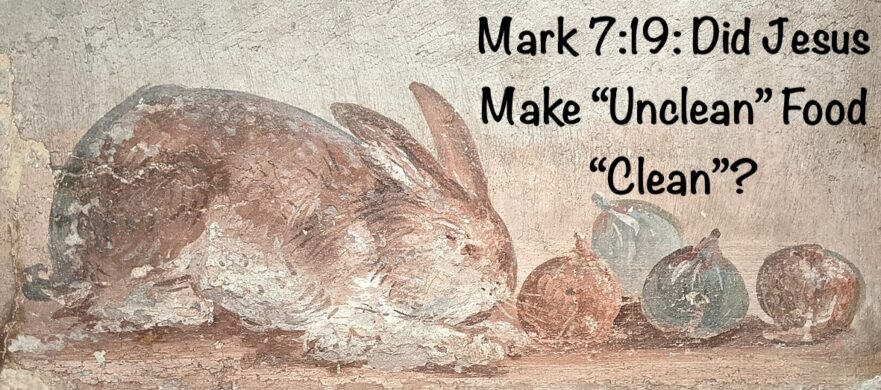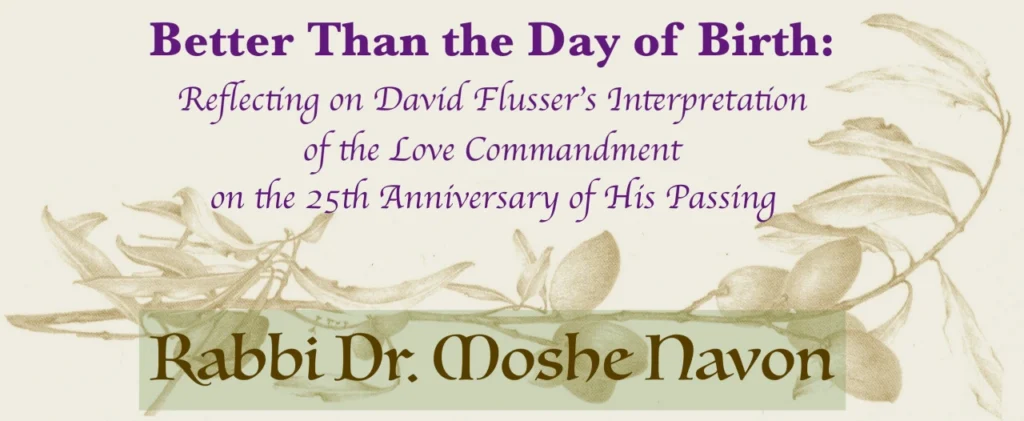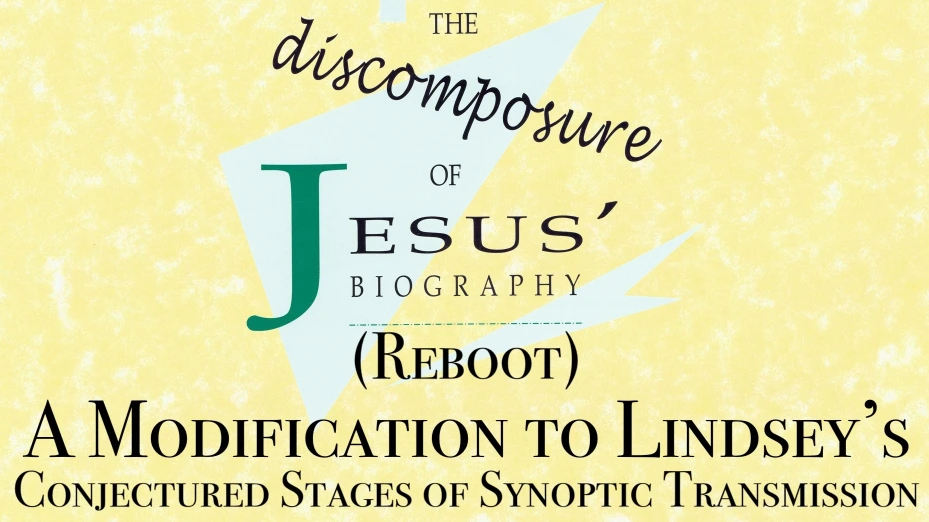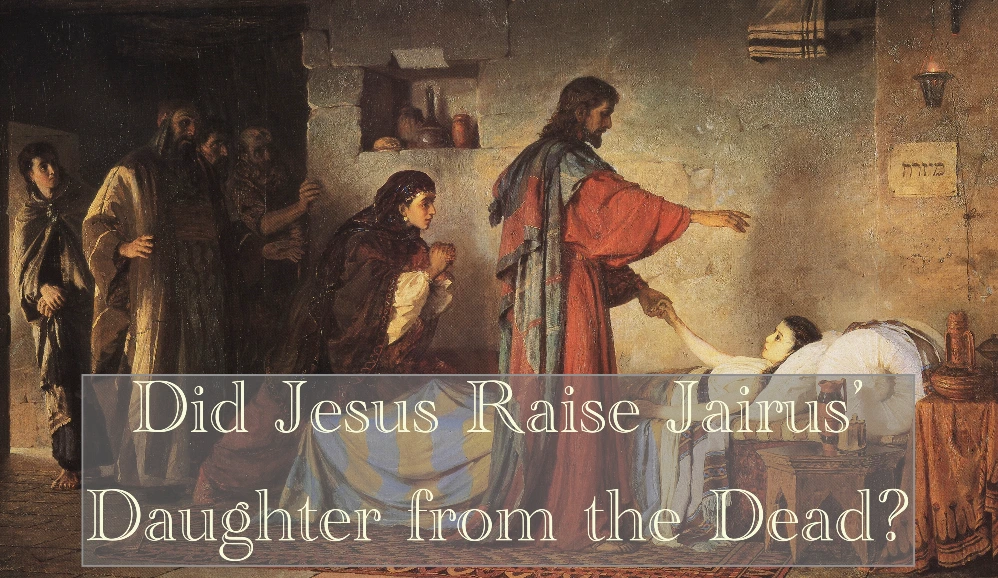How to cite this article: David N. Bivin, “Mark 7:19: Did Jesus Make ‘Unclean’ Food ‘Clean’?” Jerusalem Perspective (2008) [https://www.jerusalemperspective.com/4572/].
Revised: 04-Jun-2013Now when the Pharisees gathered together to him, with some of the scribes, who had come from Jerusalem, they saw that some of his disciples ate with hands defiled, that is, unwashed…. And the Pharisees and the scribes asked him, “Why do your disciples not live according to the tradition of the elders, but eat with hands defiled?”…. And he called the people to him again, and said to them, “Hear me, all of you, and understand: there is nothing outside a man which by going into him can defile him; but the things which come out of a man are what defile him…. Do you not see that whatever goes into a man from outside cannot defile him, since it enters, not his heart but his stomach, and so passes on?” (Thus he declared all foods clean.)
(Mark 7:1-5, 14-19; RSV)
The last four words of Mark 7:19, καθαρίζων πάντα τὰ βρώματα (katharizōn panta ta brōmata, cleansing all the foods”), have caused many Christians to suppose that Jesus did away with the biblical food prohibitions and declared “clean” (טָהוֹר, ṭāhōr) what the Torah declares “unclean” (טָמֵא, ṭāmē). The way English versions of the Bible have translated this verse has strengthened the misunderstanding: “Thus he declared all foods clean” (RSV, NRSV and NAB); “In saying this, Jesus declared all foods ‘clean’” (NIV); “By saying this, he showed that every kind of food is acceptable” (NLT); “Thus he pronounced all foods clean” (NJB); “Thus He was making and declaring all foods [ceremonially] clean [that is, abolishing the ceremonial distinctions of the Levitical Law]” (AMP).
In the Torah “clean” and “unclean” are also used of permitted and forbidden food, and therefore, because of this passage, Christians usually have believed that the biblical food laws were abrogated by Jesus. However, one should not be too quick to throw out large portions of the Torah, in this case, portions of Leviticus and Deuteronomy, because of a four-word parenthetical comment[1] by Mark at the end of a long halachic discussion. Such a serious reversal of God’s commands and contradiction of God’s word would need explanation and discussion.
The Torah prohibits Jews from eating certain animals (Lev. 11; cf. Deut. 14; Negative Commandments #172-179). We can assume that Jesus would not have violated these commandments. (Otherwise, he would have been condemned by the words of Torah, and would have been a sinner.) Nor would he have taught others to violate the commandments since he himself taught, “Anyone who breaks them [the commandments of Torah] or teaches others to break them will be called ‘light’ [קַל, kal, that is, of no esteem]” (Matt 5:19). In other words, such a disciple could not become or remain part of the “Kingdom of Heaven,” a term that Jesus sometimes used to refer to his band of full-time disciples.[2]
Paid Content
Premium Members and Friends of JP must be logged in to access this content: Login
If you do not have a paid subscription, please consider registering as a Premium Member starting at $10/month (paid monthly) or only $5/month (paid annually): Register
One Time Purchase Rather Than Membership
Rather than purchasing a membership subscription, you may purchase access to this single page for $1.99 USD. To purchase access we strongly encourage users to first register for a free account with JP (Register), which will make the process of accessing your purchase much simpler. Once you have registered you may login and purchase access to this page at this link:
In summary, Jesus’ words must be read in context. When his words are read in the light of ancient Jewish culture and rabbinic literature, one finds that he did not contradict God-given commandments. He did not make kosher biblically prohibited categories of food. He did, however, challenge the dominant purity system of his day arguing that unwashed hands do not transfer ritual uncleanness to the body through food that is eaten. In addition, he drove home a moral point: the state of a person’s heart is more important than the state of his or her hands, and the heart is unaffected by the ritual purity of the hands.

For more on the topics of Jesus, the commandments, and ritual purity, check out these JP articles:
- David Flusser and Shmuel Safrai, “The Apostolic Decree and the Noahide Commandments“
- R. Steven Notley, “Can Gentiles Be Saved?“
- Joshua N. Tilton, “A Goy’s Guide to Ritual Purity“
And check out these recent JP articles:
- Like Every Sparrow Falling: The Symbolism of Sparrows in a Saying of JesusThe multivalent image of the sparrow in ancient Jewish thought made it a useful vehicle for conveying messages about human and divine relationships.
- Better Than the Day of Birth: Reflecting on David Flusser’s Interpretation of the Love Commandment on the 25th Anniversary of His PassingI regard the twenty-fifth anniversary of David Flusser’s passing not solely as a day of loss, but also as the day that gave him to the world.
- 25 Years Since David Flusser’s PassingProfessor Serge Ruzer shares his recollections of Israeli scholar David Flusser on the twenty-fifth anniversary of his death.
- The Discomposure of Jesus’ Biography (Reboot): A Modification to Lindsey’s Conjectured Stages of Synoptic TransmissionHow did the Hebrew biography of Jesus disintegrate into the isolated pericopae that make up the Synoptic Gospels?
- Was the Hemorrhaging Woman Jesus Healed Named Rebekah?Is it possible to retrieve the name of the woman who touched Jesus’ tzitzit?
- Did Jesus Raise Jairus’ Daughter from the Dead?Should readers give more weight to the bystanders’ impressions or to the words Jesus said?

- [1] “It needs to be borne in mind that ‘declaring all foods clean’ is Mark’s interpretation of Jesus’ statement in 7:15, not Jesus’, and that Matthew seems to have a much less radical interpretation of the dominical saying” (Joel Marcus, Mark 1-8 [AB 27; Garden City: Doubleday, 2000], 458). In fact, Mark’s editorial comment, “cleansing all the foods,” is missing entirely from Matthew’s parallel (Matt 15:17). “The syntax clearly marks out καθαρίζων πάντα τὰ βρώματα as a parenthetical editorial comment, since there is no masculine singular subject within the reported speech to which it can relate (hence the emendations found in some MSS, representing attempts to ‘correct’ the syntax by those who failed to recognize the nature of the clause…The subject therefore is Jesus (the subject of λέγει, v. 18a), whom Mark thus interprets as ‘cleansing all food’ in the sense of declaring that it is no longer to be regarded as ritually ‘unclean’” (R. T. France, The Gospel of Mark: A Commentary on the Greek Text [NIGTC; Grand Rapids: Eerdmans, 2002], 291; cf. 276). Mark’s interpretation may have been intentionally ambiguous. It faithfully describes the halachah for those who are concerned with halachic purity, and it even has a secondary application to Gentiles who are not responsible for the Torah food laws. ↩
- [2] Paul’s instructions about eating meat sold in the market or meat set before you by an unbeliever at a dinner to which you have been invited (1 Cor. 10:25-29) was directed at former Gentiles (now followers of Jesus) who lived in heathen environs and near pagan temples. Paul championed the status of believing Gentiles within the Edah (community), but he would not have instructed Jews to enter pagan homes or eat food offered to them by pagans. Former Gentiles who were members of the Edah were, by apostolic halachah, not obligated to keep all the commandments nor to circumcise their male children (Acts 15); however Jewish followers of Jesus were so obligated (Acts 21:18-24), and this obligation included the keeping of the community’s Oral Torah, its interpretation of the Written Torah. ↩






































































































Comments 3
Thank you for this article. …
God Bless You All.
Very insightful
Another great application of the NT in harmony with the Tanakh by David Bivin….
AAB